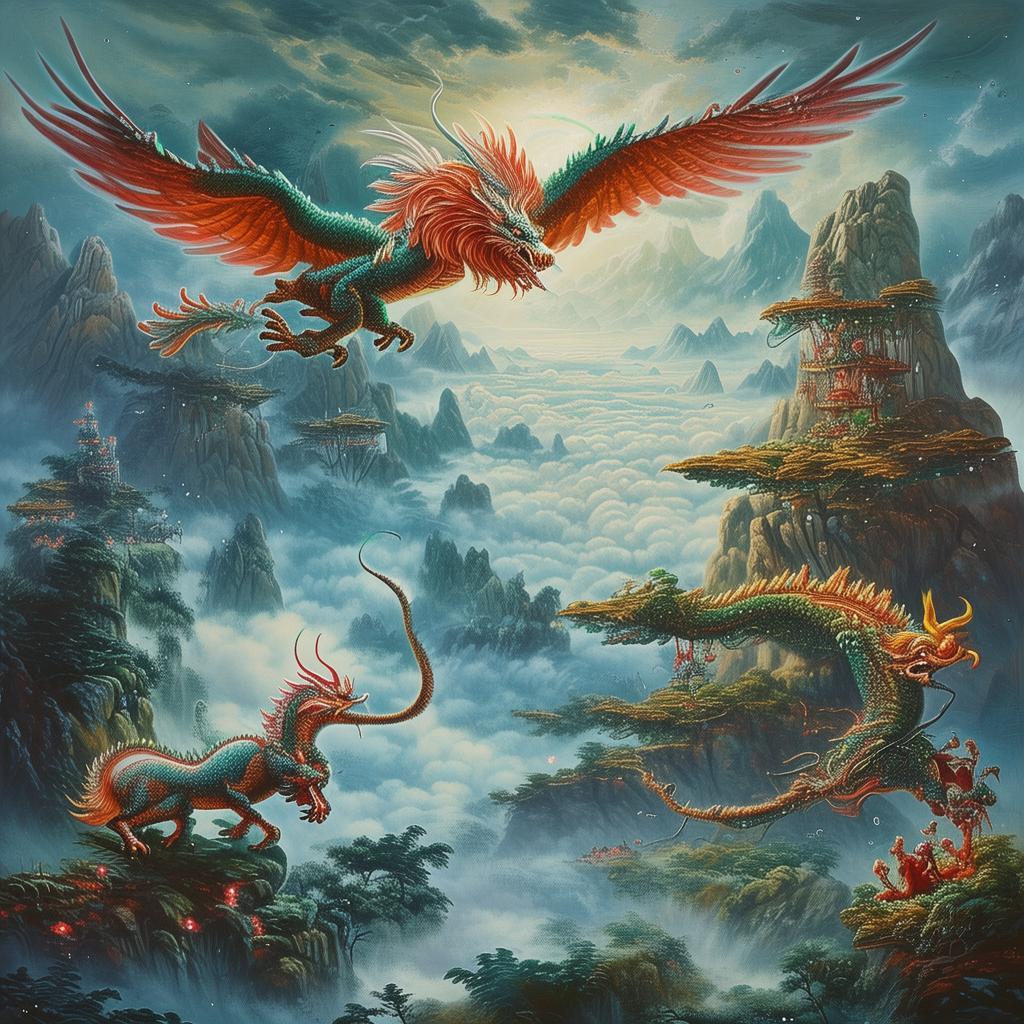The Labyrinth of Elysium
In the heart of the ancient world, where the gods walked among mortals and the fate of nations hung in the balance, there lay a place known as Elysium. A land of eternal bliss, where the souls of the virtuous were rewarded after their deaths. Yet, even in this paradise, there was a paradox that would challenge the most valiant of heroes.
Achilles, the greatest warrior of the Trojan War, was destined for Elysium. His legendary strength and courage had earned him the respect of gods and men alike. Yet, his journey was fraught with moral dilemmas, as he grappled with the paradox of his heroism.
The paradox was simple yet profound: to enter Elysium, one must be without guilt. Achilles, however, bore the guilt of a past action that had caused the death of his dear friend, Patroclus. This guilt threatened to bar his path to the afterlife, and it became the central conflict of his journey.
One fateful day, as Achilles wandered the labyrinthine paths of Elysium, he encountered the goddess Athena, who revealed the nature of his paradox. "Achilles," she said, "you must choose between the path of guilt or the path of innocence. You cannot have both."
Intrigued by the riddle, Achilles set out to unravel the mystery. He sought the counsel of the Oracle of Delphi, who offered him a clue: "The truth is not always what it seems. Look beyond the veil of appearances, and you shall find the path."
Determined to uncover the truth, Achilles embarked on a quest that would take him to the very edges of the known world. He traveled to the land of the Hyperboreans, where he encountered a people who lived in harmony with nature, guided by the wisdom of their elders.
Among the Hyperboreans, Achilles found a man who was said to possess the secret to eternal life. The man, named Thales, revealed to Achilles the paradox of Elysium: "To enter Elysium, one must not only be without guilt but also without fear. For fear is the root of all evil, and it binds us to the earthly realm."
Intrigued, Achilles sought to confront his own fears. He returned to the battlefield, where he had once fought with unbridled rage. There, he encountered a ghostly figure, the specter of his friend Patroclus. The specter spoke to Achilles, revealing the true nature of his guilt: "Your guilt is not in the act itself, but in the fact that you allowed it to consume you. You are not the monster you believe yourself to be."
With this revelation, Achilles realized that his journey was not just about forgiving himself but also about forgiving others. He understood that the path to Elysium was not a solitary quest but a collective one, one that required him to heal the wounds of his people and restore harmony to the world.
Returning to the labyrinth of Elysium, Achilles confronted the goddess Athena once more. "I have found the truth," he declared. "I am not the monster I believed myself to be, and neither are my people. Together, we can heal the wounds of war and pave the way for a new era of peace."

Athena smiled, recognizing the wisdom in Achilles' words. "Your journey has been long and arduous, but you have overcome the paradox of Elysium. You have shown that heroism is not just about strength and courage but also about compassion and understanding."
With the paradox resolved, Achilles stepped through the gates of Elysium, guided by the wisdom he had gained on his journey. He was welcomed into the land of eternal bliss, not as a conqueror but as a savior, a man who had learned the true meaning of heroism.
The Labyrinth of Elysium is a tale of moral paradox and the journey of self-discovery. It is a story that challenges us to question our own beliefs and to seek the truth within ourselves. In the end, it is a story that reminds us that the greatest heroism lies not in the acts we perform but in the way we choose to live our lives.
✨ Original Statement ✨
All articles published on this website (including but not limited to text, images, videos, and other content) are original or authorized for reposting and are protected by relevant laws. Without the explicit written permission of this website, no individual or organization may copy, modify, repost, or use the content for commercial purposes.
If you need to quote or cooperate, please contact this site for authorization. We reserve the right to pursue legal responsibility for any unauthorized use.
Hereby declared.









